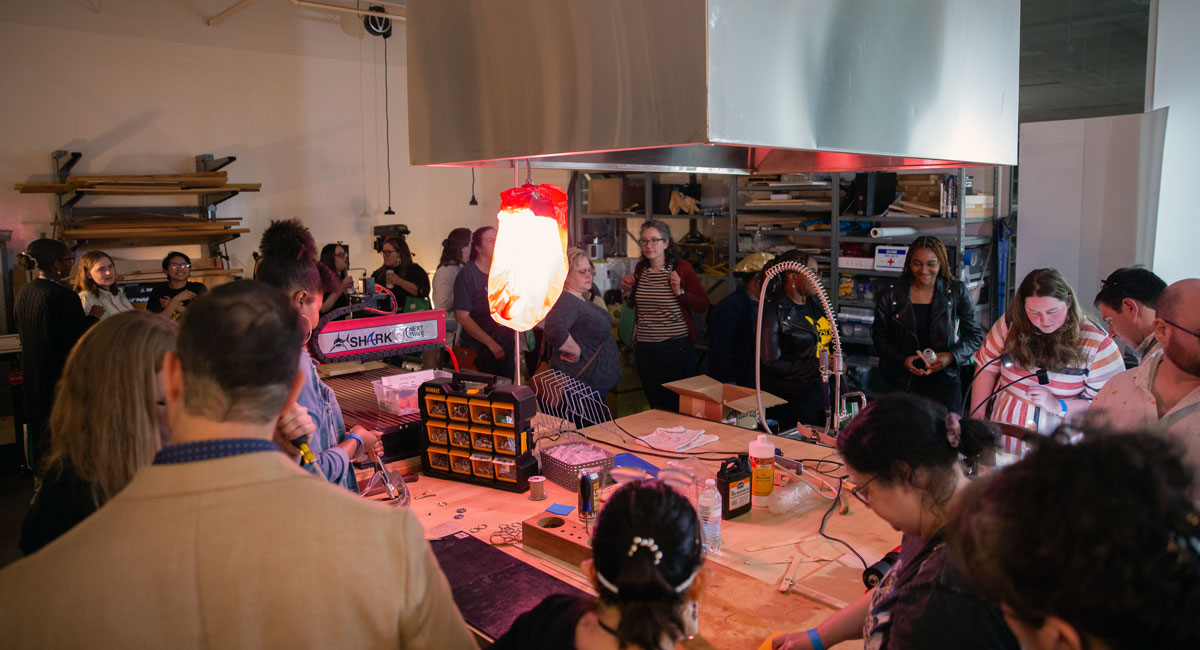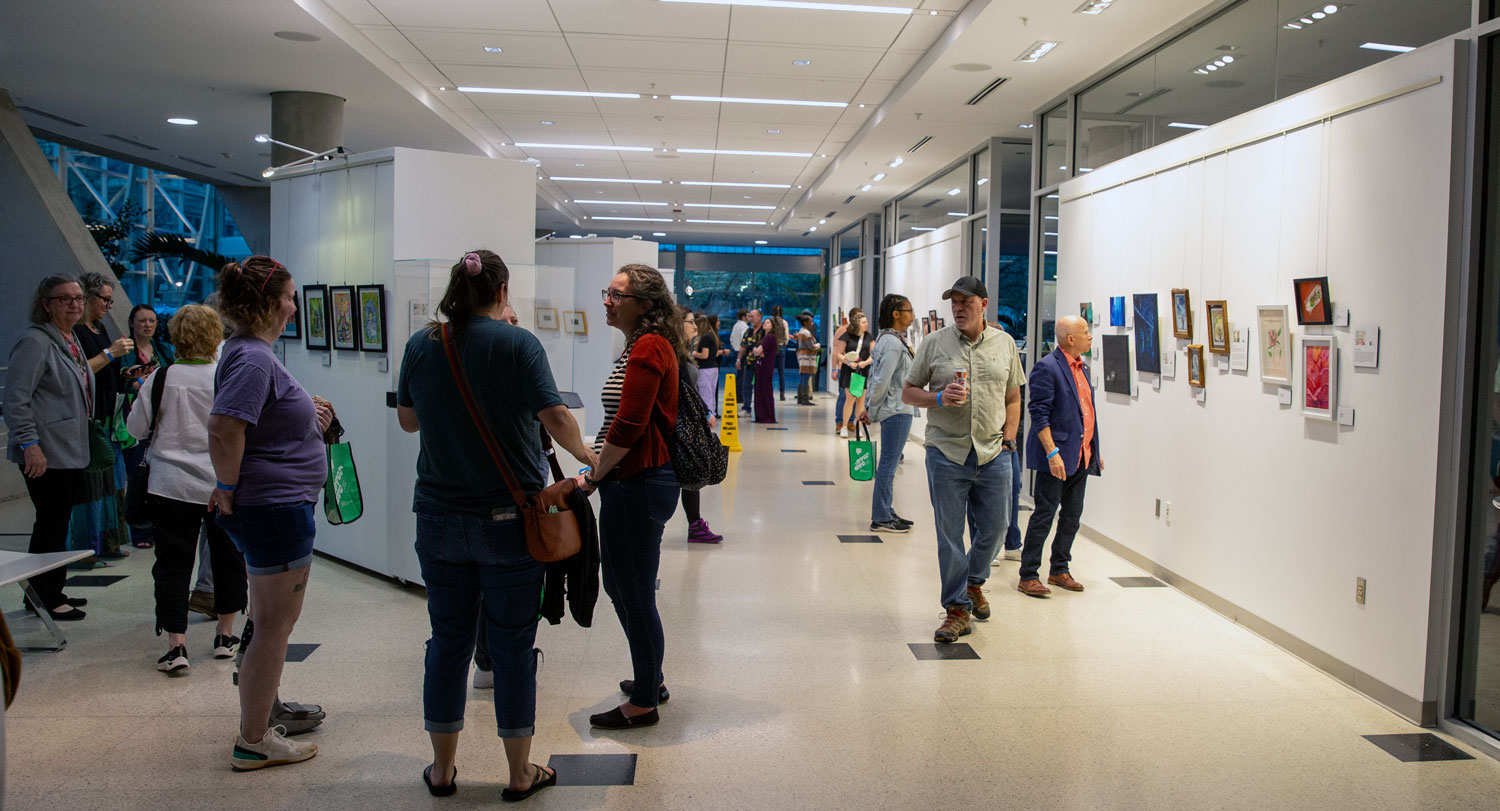
In libraries, we trust.
In a nation fragmented by racial, ethnic, political and socioeconomic divides, libraries are among the few institutions Americans still have confidence in.
According to research by the Pew Research Center, nearly 80 percent feel that public libraries help them find trustworthy and reliable information, and 76 percent said libraries help them learn new things. In contrast, fewer than 20 percent say they trust the government.
"Libraries play a vital role in their communities and reflect that community. They are vibrant learning and social engagement spaces — they provide free access to books, digital media, internet access, training, educational programs and community events,” says Lyda McCartin, director of the University of South Carolina’s School of Information Science. “Through these things they bridge the digital divide in their communities, educate and empower citizens, and enhance the quality of life in their communities.
Libraries don’t just provide free access to books and information resources. They maintain a valued status in their communities by adapting to societal and technological change and being responsive to community wants and needs to empower their patrons’ well-being.
Social services and health information are often facilitated at public libraries. Community programs offer workshops, cultural events, training, arts and crafts, companionship, meeting space and computer equipment and Wi-Fi. And it’s all free of charge regardless of social or economic status.
Graduates of USC’s library and information science master’s program are serving libraries across the nation. They lead public libraries in large and small communities, academic libraries at major universities, and state libraries from South Carolina to California and everywhere in between.
“People with ties to the University of South Caroling are doing incredible things,” says Melanie Huggins, executive director of Richland Library in Columbia. “What makes us a strong network is that we certainly share the connection of being USC graduates, but librarians are also in the business of sharing. We are all very free with our information in support of each other.”
What they're saying
We talked to a few alumni about the role of libraries in their community and how they are adapting to meet their constituents’ needs while offering expanded services and resources.
-
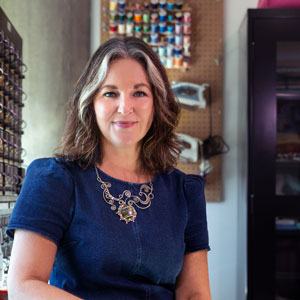
Melanie Huggins (’95)
is executive director of Richland Library. She was working at the library while attending USC. When she completed her master’s, she took a position at Charlotte Mecklenburg Library and later moved to St. Paul, Minnesota, as library director. In 2009, she returned to Richland Library.
-
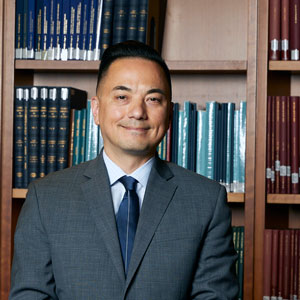
Michael Lambert (’00)
is city librarian for the city and county of San Francisco. He also worked at Richland Library while still a student at USC, majoring in history. Upon completing his master’s degree, he was employed as a public services librarian in San Mateo County in California. He joined the San Francisco Public Library in 2014.
-
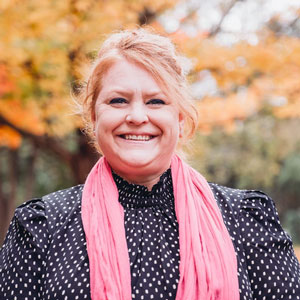
Denise Lyons (’04)
is in her first year as commissioner/state librarian of the Kentucky Department for Libraries and Archives. Her aunt, a professor at USC, encouraged her to earn her master’s degree. She has worked at the Dallas Public Library, South Carolina State Library, Lexington (S.C.) Public Library and the USC School of Medicine Library.
What impact do libraries have as a community resource, providing free access to services and information regardless of social-economic status?
Huggins: The mission of public libraries has always been to offer equitable opportunities for learning and access to information people need to make their lives better. In the past, the main way to do that was through books. Now, we have so many other ways in which people can learn and get access to the tools they need to advance themselves. We are committed to equity and inclusion. For example, while all our buildings meet standards for ADA compliance, we’re starting to do a deeper audit into how we can serve people who need accommodations beyond what code requires. We've started opening our main library for Sensory Sundays where we dim the lights and limit activity to accommodate the needs of our patrons with sensory challenges.
Lambert: How people consume information and engage with the library has changed a lot. Our circulation now is higher than it's ever been, but it's about 52% physical and 48% digital — ebooks, streaming, digital audiobooks — and it reflects how people like the convenience of getting what they want, when they want it, and how they want it. The library is the most democratic of institutions. Everybody is welcome, regardless of your socioeconomic status, your sexual orientation, your gender identity, your ethnicity.
Lyons: Public libraries fit into people's lives along a very long continuum from preschool programs at the public library, school librarians, summer learning programs, and academic libraries at colleges and technical schools. Public libraries serve adult readers and others through programming; meeting and creative spaces; and access to W-Fi, computers and other equipment. If you're blind or print disabled, we have audiobooks and the Talking Book Library program.
Libraries are employing social workers, providing access to Wi-Fi, and providing connections to health, housing and other areas of need. What is their role in the social infrastructure?
Lambert: We were the first urban library in the country in 2009 to have a full time psychiatric social worker embedded at our main library. We've expanded upon that, and we have a team of health and safety associates. These are individuals who are formerly unhoused, they work for the library to help social workers connect with individuals in a culturally competent way. Our opportunities for workforce development also include a partnership with the nonprofit Urban Alchemy to employ formerly justice-involved individuals re-entering society in positions such as library greeters and restroom monitors.
Huggins: We hired our first social worker 10 years ago, and we now have a social work department. The primary issues that people meet with a social worker about at Richland Library are food- and health-related. They have to apply for assistance programs online, and they need documentation and identification. For a lot of people, that's a challenge, so how can we make it easier? Libraries have always been in the resource and referral business, and social workers are so fantastic at that. For anyone who thinks the library may be experiencing mission creep, consider this: If we were to make our social work team disappear, that is not going to stop the questions. People are still going to walk in every day seeking help, so we will either have to retrain librarians or rely on our social work partners. They're trained to work with challenging situations, and they're such a great complement to librarians.
Lyons: The library is one of the only places where wifi is free, and you don't have to buy anything to use the internet. If families don't have access at home, then children may not be able to do homework and caregivers may not be able to apply for a job, access health care or other assistance. Families may have cell phones, but they may not have data plans to go with them. Even if they do, it’s hard to do your homework or write a resume on a phone. Libraries are filling those gaps not only on location by lending equipment in some cases and bringing hotspots to local businesses such as laundromats.
It's an election year. How can libraries help address the flood of mis- and disinformation?
Lyons: It's the Wild West. Information is free, it's everywhere, and it's coming from all directions. Programs that public libraries and school libraries are offering media literacy training about finding and evaluating accurate and credible sources. It needs to be continuously taught – even if it’s the same lesson over and over – because as disinformation becomes sneakier, it becomes a bigger challenge.
Lambert: Libraries are also places for civic engagement. We have meeting rooms, so we have the power to convene. Many neighborhood groups, municipal partners, community-based organizations, and nonprofits access our facilities to have a dialogue on all kinds of topics and discussions.
Huggins: We're drinking from a firehose, and it’s almost overwhelming. We have a service called Newsguard on our computers in the library that gives a validity rating to websites. The community can search any of the periodicals, newspapers and resources that we subscribe to, which have already been vetted. The challenge is that that's not where people get their news from anymore. So, we try to get people to ask good questions about the sources that they're consuming and be responsible for vetting what they're reading.
What’s next for libraries? What challenges or opportunities do they face?
Lambert: We've done a lot of community engagement, focus groups, employee and branch surveys as part of our strategic planning initiative. The result is a new vision, new mission and new strategic priorities to reflect the business that we're in today, which is to foster community and connect our constituencies not just to our collections and information, but also to conversations and ideas and each other. We are honoring the past, but we’re also forward looking in how we center our community. We're still going to be a champion for literacy and a resource provider, but we have other strategic priorities such as community catalyzer and as a cultural amplifier, celebrating the diversity and the heritage of our diverse community.
Lyons: People who haven't been in a public library in a while may have a nostalgic understanding of what a library is. Those of us who have been working in libraries, at least in the past 10-20 years, have seen a strong shift to an organization that adapts to community needs. With that comes some unfunded mandates, and decision makers may not realize not all libraries have the resources to keep up. Libraries continue to remain adaptable to better serve their communities. For example, librarians have realized that with internet access and private study rooms, telehealth is a way to bring additional resources to those communities. If you have a health issue and you live in a remote area, that library might be closer than a medical office.
Huggins: We ask ourselves, “Who are we not serving?” In a county library system where everyone's property tax supports our mission, we have to ask ourselves who are we not reaching, why is that and is there something we can provide for them? The long tail of COVID is isolation, loneliness and learning loss, so we keep combating this kind of new epidemic by bringing people together and creating spaces where all people feel welcome to come together and get to know their community all over again.
